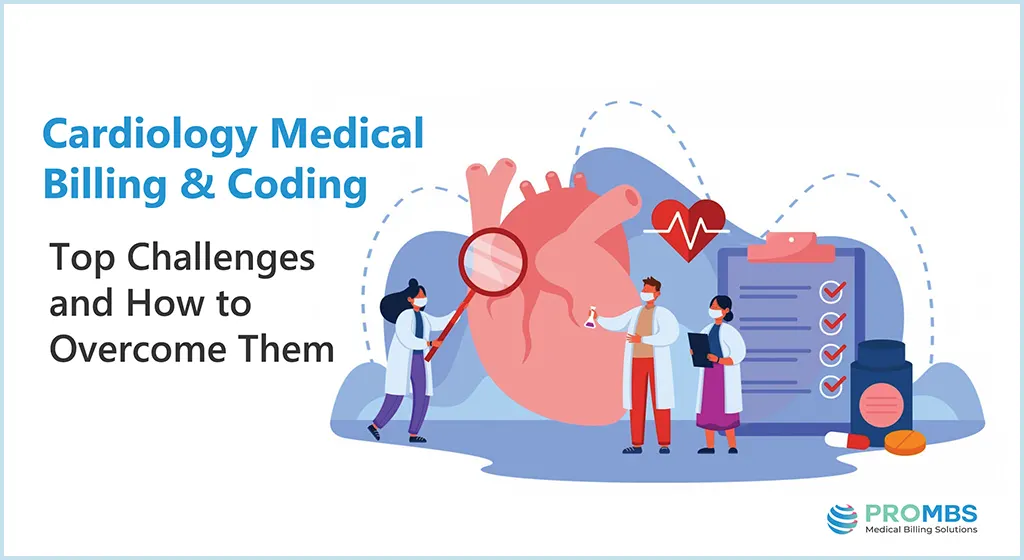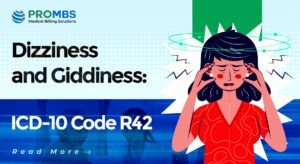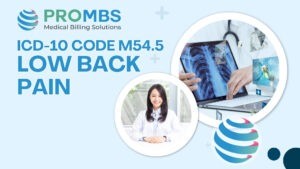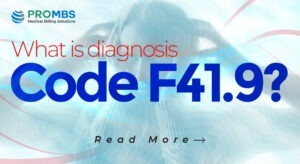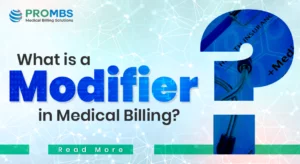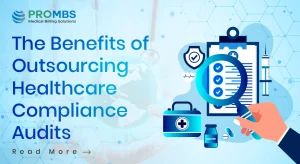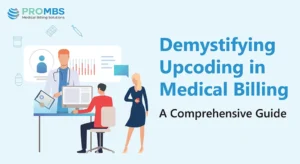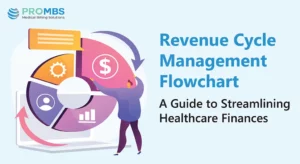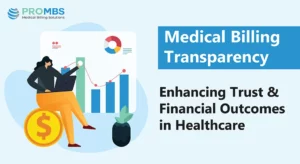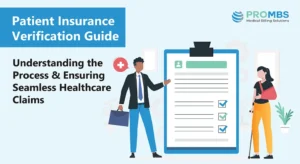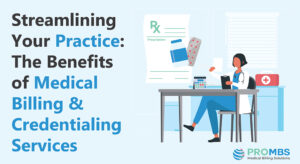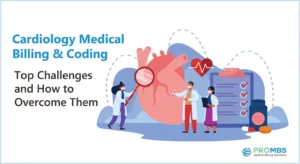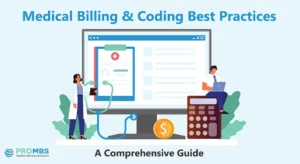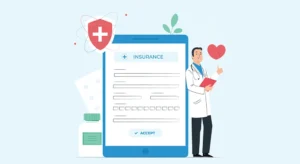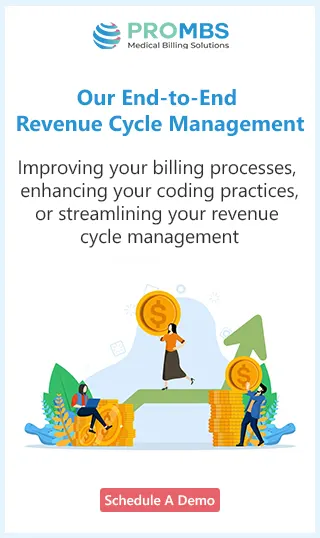Cardiology Billing and Coding Challenges
Cardiology practices face unique challenges in medical billing and coding due to the complex nature of the specialty. Accurate and efficient billing and coding are crucial for ensuring timely reimbursement and maintaining a healthy revenue cycle. In this article, we will address the top challenges faced by cardiology practices and provide actionable strategies to overcome them.
Understanding Cardiology Medical Billing and Coding
Cardiology billing services involves translating the medical services cardiologists provide into standardized codes used for billing and reimbursement purposes. It requires in-depth knowledge of cardiology procedures, diagnosis codes, and payer-specific guidelines. The accuracy and specificity of coding directly impact the reimbursement and financial health of cardiology practices.
Common Challenges in Cardiology Medical Billing and Coding
Keeping up with Changing Guidelines and Codes
Cardiology is a rapidly evolving field, with new treatments, procedures, and guidelines being introduced regularly. Staying updated with the latest changes in coding guidelines, CPT codes, and modifiers can be challenging. Failure to use the correct codes and modifiers can result in claim denials, delayed payments, and potential compliance issues.
Minimizing Errors in Coding
Coding errors can occur due to the complexity of cardiology procedures and the large number of codes involved. Human errors in code selection, incorrect use of modifiers, and insufficient documentation can lead to claim rejections and revenue loss. Minimizing coding errors is crucial for accurate billing and timely reimbursement.
Maximizing Revenue and Reducing Denials
Cardiology practices need to optimize their revenue cycle by maximizing reimbursements and reducing claim denials. Challenges such as pre-authorization requirements, incorrect coding, lack of medical necessity documentation, and limited understanding of payer-specific guidelines can result in claim denials and revenue leakage.
Ensuring Accurate Documentation
Accurate documentation is essential for cardiology medical billing and coding. Insufficient or incomplete documentation can lead to claim denials, coding inaccuracies, and compliance issues. Cardiologists must ensure detailed and comprehensive documentation of patient encounters, procedures performed, diagnoses, and medical necessity.
Staying Compliant with Regulatory Requirements
Cardiology practices must adhere to various regulatory requirements, including HIPAA regulations, Medicare guidelines, and local payer policies. Staying compliant with these regulations can be challenging, especially with frequent updates and changes in requirements. Non-compliance can result in penalties, audits, and reputational damage.
Strategies to Overcome Cardiology Medical Billing and Coding Challenges
To overcome the challenges in cardiology medical billing and coding, cardiology practices can implement the following strategies:
Continuous Education and Training
Continuous education and training are essential to keep cardiology billing and coding staff up to date with the latest guidelines, coding changes, and regulatory requirements. Investing in ongoing education and training programs ensures the staff has the knowledge and skills to accurately code cardiology procedures, reducing errors and improving overall efficiency.
Implementing Technology Solutions
Leveraging technology solutions such as electronic health records (EHR) and practice management systems can streamline the billing and coding processes. These systems offer features like automated code suggestions, built-in coding guidelines, and real-time claim scrubbing, reducing errors and improving coding accuracy. Implementing advanced technology solutions can also improve documentation, streamline workflow, and enhance revenue cycle management.
Streamlining Workflow and Documentation Processes
Optimizing workflow and documentation processes can significantly impact the efficiency of cardiology medical billing and coding. Standardizing documentation templates, implementing structured reporting, and ensuring proper communication between healthcare providers and billing staff can improve coding accuracy, reduce claim denials, and expedite reimbursement.
Collaborating with Professional Medical Billing Services
Outsourcing cardiology medical billing and coding to professional medical billing services can alleviate the burden on in-house staff and ensure accurate and timely reimbursement. These services have specialized knowledge of cardiology billing and coding requirements, stay updated with industry changes, and have efficient processes in place to maximize revenue and minimize denials.
Conducting Regular Audits and Reviews
Performing regular internal audits and reviews of coding practices, documentation, and revenue cycle processes is crucial to identifying areas for improvement. Audits can help identify coding errors, documentation gaps, compliance issues, and revenue leakage. By addressing these issues proactively, cardiology practices can enhance coding accuracy, optimize revenue, and ensure compliance with regulatory requirements.
Cardiology medical billing and coding present unique challenges that require specialized knowledge and expertise. By understanding and addressing these challenges, cardiology practices can optimize their revenue cycle, ensure accurate reimbursement, and maintain compliance with regulatory requirements. Implementing strategies such as continuous education, leveraging technology solutions, streamlining workflow and documentation processes, collaborating with professional medical billing services, and conducting regular audits can help overcome these challenges effectively. By doing so, cardiology practices can focus on providing quality patient care while maximizing their financial performance.
FAQs
What are the common challenges in cardiology medical billing and coding?
Common challenges in cardiology medical billing and coding include keeping up with changing guidelines and codes, minimizing errors in coding, maximizing revenue and reducing denials, ensuring accurate documentation, and staying compliant with regulatory requirements.
How can cardiology practices overcome coding errors?
Cardiology practices can overcome coding errors by investing in continuous education and training, implementing technology solutions, streamlining workflow and documentation processes, collaborating with professional medical billing services, and conducting regular audits to identify and address coding errors.
Why is accurate documentation important in cardiology medical billing and coding?
Accurate documentation is crucial in cardiology medical billing and coding as it ensures proper code selection, supports medical necessity, reduces claim denials, and maintains compliance with regulatory requirements. Insufficient or incomplete documentation can lead to coding inaccuracies, claim rejections, and revenue loss.
What are the benefits of outsourcing cardiology medical billing and coding?
Outsourcing cardiology medical billing and coding to professional medical billing services offers several benefits, including specialized expertise, knowledge of industry changes, efficient processes, accurate coding, timely reimbursement, and the ability to focus on core patient care activities.
How can cardiology practices ensure compliance with regulatory requirements?
Cardiology practices can ensure compliance with regulatory requirements by staying updated with HIPAA regulations, Medicare guidelines, and payer-specific policies. Implementing proper documentation practices, conducting regular staff training on compliance, and collaborating with professional medical billing services can help maintain compliance and avoid penalties.
Outsource Cardiology Billing needs to Pro Medical Billing Solutions
Choosing Pro Medical Billing Solutions as your cardiology billing and coding partner can bring many benefits. As a HIPAA-compliant provider, we utilize cutting-edge tools and technologies to streamline your billing processes. Our team of experts is always available to answer your questions and provide timely billing services, available 24/7.


